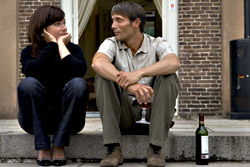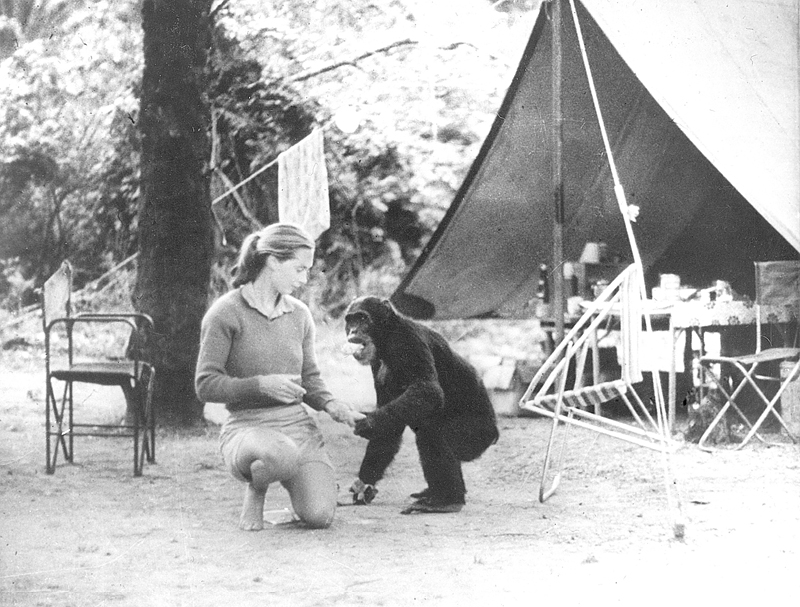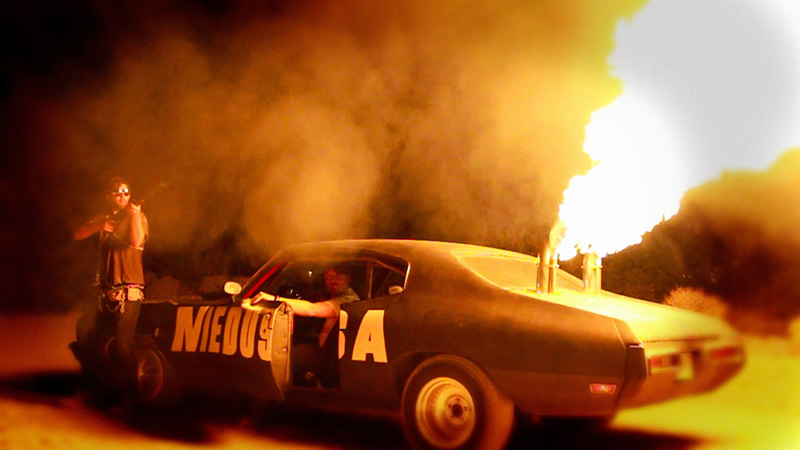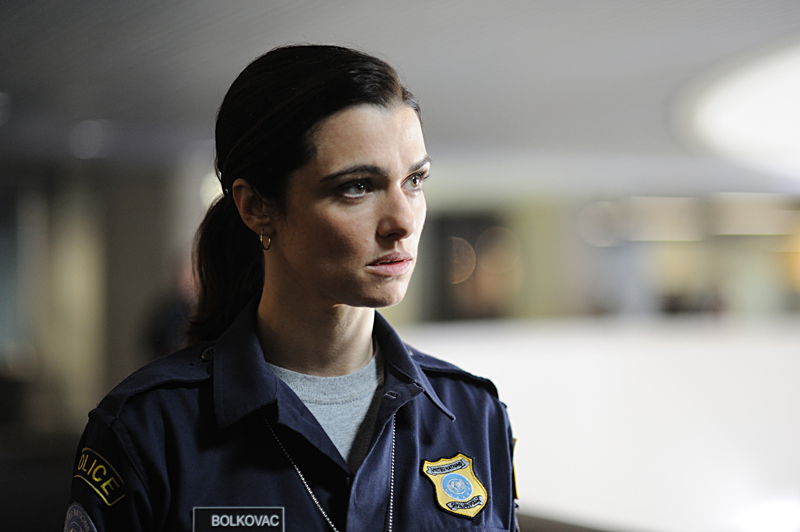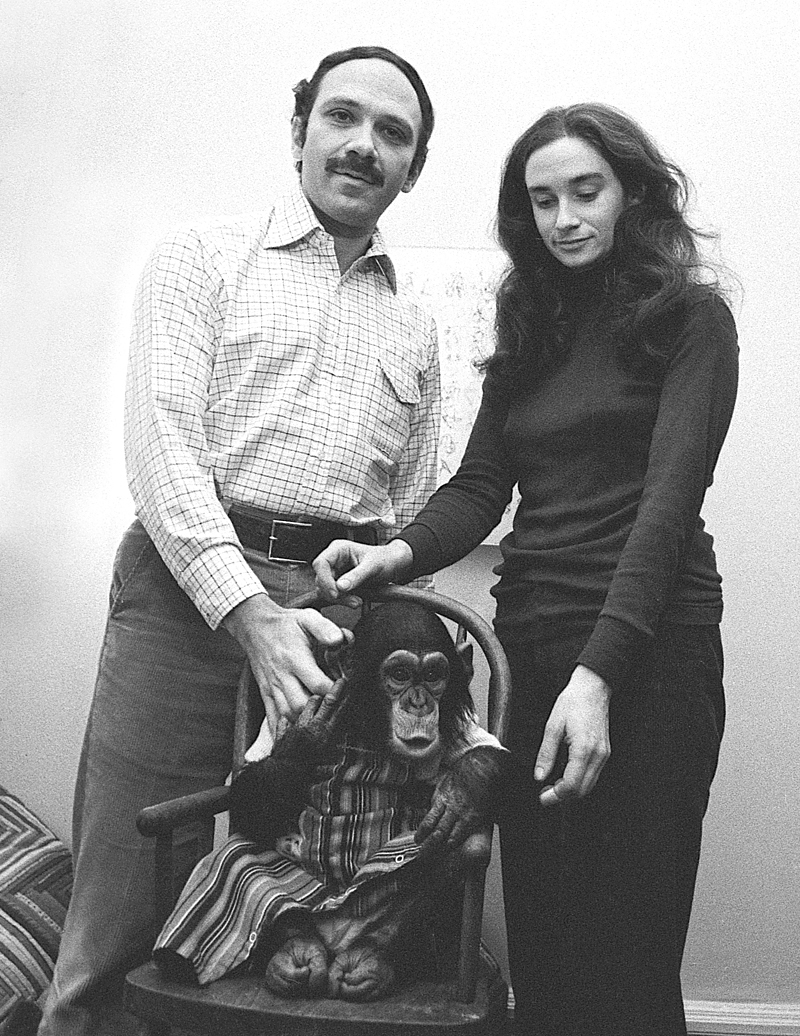A reformist disciple of Dogme, that earth- and camcorder-shaking movement wherein waves are broken and celebration is cause for alarm, Danish director Susanne Bier makes what you’d call emotional disaster movies. Her Open Hearts and Brothers, melodramas at once feverishly pitched and finely tuned, deploy paralysis and war, respectively, to test their characters’ will to live—and their viewers’ ability to suspend disbelief. Like Lars von Trier’s early exercises in DV soap opera, Bier’s films toy with the handheld camera, in particular with its capacity to keep Hollywood-style contrivance somewhat grounded in reality. Open Hearts (read open as a verb) practically issues an audience command: Believe that the fiancée of a man crippled in a car crash would fall in love with the husband of the woman who caused the accident! No? Would you believe it if the movie itself—blurry, pixilated, colors bleeding—looked as though it had been pulled from the wreckage?
Digital video is much sharper now than it was in 2001. But Bier has nonetheless capped her trauma trilogy with After the Wedding, which has less to do with a terrorizing event—a bad breakup, in this case—than with that event’s collateral damage, namely trust. Still licking his poor heart’s wounds after 20 years, Jacob (Mads Mikkelsen) works at an orphanage in Bombay and vows never to return to Copenhagen, scene of the romantic crime. Muscular, oddly handsome, funny, patient, and adoring of children, Jacob is introduced scooping rice for hordes of young Indian kids with their arms outstretched. Will we ever learn what kind of woman would dream of dumping this veritable saint?
Coincidence, the mistress of melodrama, comes calling: Jacob gets an invitation from a Danish CEO to apply for charitable funds that could get his orphanage the supplies it sorely needs, but only on condition that he fly to Copenhagen for a personal meeting. Reluctantly accepting, Jacob soon comes face to face with Helene (Sidse Babett Knudsen), his former lover, discovering at her daughter’s wedding that she’s now the wife of his potential benefactor, zillionaire Jørgen (Rolf Lassgård). Then he learns that the daughter, 20-year-old Anna (Stine Fischer Christensen), isn’t a blood relative of the businessman—that she never knew her real father. Just coincidence, is it? Even paranoids have enemies, and Jacob doesn’t hesitate to consider that he’s been set up for some sort of emotional blackmail, Jørgen’s secret plot implying that Bier and Dogme-vet scenarist Anders Thomas Jensen aren’t the only ones who get off on manipulation. Indeed, one of the many smart things about After the Wedding is how shrewdly it suggests a higher power than screenwriting.
Playing God, on one side of the camera or another, is the essence of Dogme. What happens after the wedding comprises a full three-quarters of Bier’s epic, whose near-biblical twists and turns—I wouldn’t think of giving them away—are enough to fill four weepies. As before, the director dares you to deem her work absurd; here, she also forces us to acknowledge that we wouldn’t blindly trust a movie’s good Samaritanism any more than Jacob would believe in pennies from heaven. And no wonder: We’ve all been burned. Bier teases us by fluctuating Jørgen’s reliability: Bulky and commanding in a way that only old money allows, Jørgen, too, adores kids, but he has every creature’s head stuffed and mounted on the blood-red living-room wall of his country estate. And that naturally startles Jacob, whose skeptical, bruised-looking eyes (Mikkelsen wept crimson tears as Le Chiffre in Casino Royale) are the focus of many extreme close-ups. Bier has quite an eye herself: Like Douglas Sirk reborn as a digital neorealist, the director defies her talky genre by investing energy and genuine invention in almost every shot. For a filmmaker who’s so attracted to psychological discomfort, Bier has a disarming affinity with the pleasure principle. In this she’s further blessed to have cast the riveting Mikkelsen, who here displays the self-conscious jitter of the young Pacino.
No surprise that Bier is Hollywood-bound. Both Brothers and Open Hearts are being remade, the latter by Zach Braff; Bier’s English-language debut, already in the can, is a DreamWorks production with Halle Berry and Benicio Del Toro. As it does for Jacob, opportunity knocks. If this prodigiously gifted director were filming her career, the movie—call it After the Crash—would be about whether we can count on American dreamworkers not to turn her into Paul Haggis.
